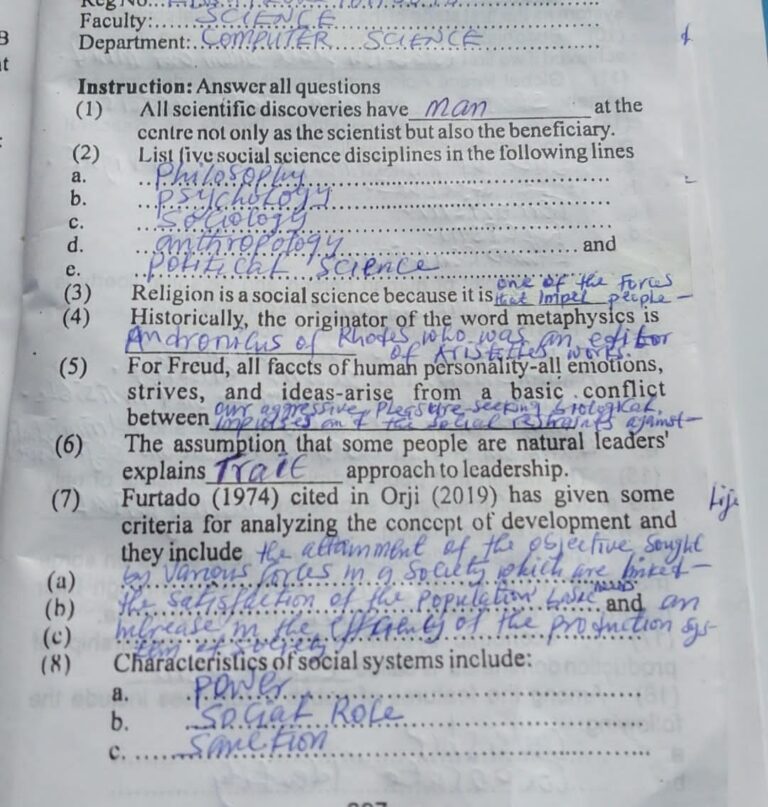HIR 105 Assignment 1 Solution 2024

HIR 105 Assignment: Discuss the historical assumption of civilization in Africa
Solution
The historical assumptions about civilization in Africa have been shaped by a complex interplay of factors, including colonialism, Eurocentrism, and ethnocentrism. These assumptions have often been biased and misleading, contributing to a distorted view of Africa’s historical development. In a more extensive exploration, we can delve into various aspects that have influenced these historical assumptions.
- Colonial Narratives:
The colonial era played a pivotal role in shaping perceptions of Africa. During the scramble for Africa in the late 19th and early 20th centuries, European powers sought to legitimize their imperialistic endeavors. The portrayal of Africa as a “dark continent” or a blank slate waiting to be civilized served to justify the colonization and exploitation of its resources. Colonial powers propagated the idea that Africa lacked advanced civilizations, using this narrative to mask the rich cultural, social, and economic structures that existed on the continent. The Eurocentric lens through which Africa was viewed contributed to the marginalization of indigenous histories and achievements. - Ethnocentrism and Eurocentrism:
Ethnocentrism, the tendency to evaluate other cultures based on one’s own cultural norms, played a significant role in the assumptions about African civilizations. Eurocentrism, the belief in the inherent superiority of European culture, led to the dismissal of African cultures as inferior. The ethnocentric view often measured the development of societies against European benchmarks, neglecting the diverse and sophisticated civilizations that thrived in different regions of Africa. This skewed perspective contributed to the notion that Africa was devoid of advanced social and political structures. - Neglect of Ancient Civilizations:
Ancient African civilizations, such as the Egyptian civilization along the Nile, were sometimes detached from the broader African context in historical narratives. The achievements of these societies in architecture, astronomy, and governance were overshadowed by a Eurocentric focus on ancient Greece and Rome. The Great Zimbabwe civilization in Southern Africa and the Mali Empire in West Africa were also marginalized in historical discourse. The lack of emphasis on these advanced societies contributed to the misconception that Africa had a limited historical and cultural legacy. - Impact of the Slave Trade:
The transatlantic slave trade further perpetuated negative stereotypes about Africa. The dehumanization of Africans during this period reinforced the notion that the continent was inhabited by people lacking in civilization. The erasure of African agency and contributions to global trade and commerce reinforced a distorted narrative of African societies. The slave trade also disrupted existing social structures and economies in Africa. This disruption was sometimes erroneously interpreted as evidence of a lack of organizational complexity in African societies rather than recognizing the external forces at play. - Focus on Written Records:
Eurocentric perspectives often placed a premium on written records as a measure of civilization. Since some African societies relied more on oral traditions than written documentation, this led to the misconception that they lacked a sophisticated level of organization or cultural achievements. The importance of oral traditions in preserving history, cultural practices, and knowledge in many African societies was overlooked. This bias towards written records contributed to the undervaluation of the richness and complexity of African civilizations. - Cultural Diversity Overshadowed:
Africa is a continent of immense cultural diversity, with numerous ethnic groups, languages, and traditions. However, historical assumptions often generalized or stereotyped the entire continent, overlooking the intricate tapestry of diverse civilizations that existed. The failure to recognize the diversity within Africa contributed to oversimplified and homogenized narratives that perpetuated misunderstandings about the continent’s historical development.
In conclusion, the historical assumptions about civilization in Africa were deeply influenced by colonialism, ethnocentrism, and Eurocentrism. These biases led to the marginalization of Africa’s rich and diverse history, perpetuating stereotypes about the continent’s supposed lack of civilization. It is crucial to challenge and revise these historical assumptions, acknowledging the complexity and sophistication of African civilizations throughout the ages. Contemporary scholarship continues to unveil the depth of Africa’s historical contributions and challenges the misrepresentations that have shaped our understanding of the continent.






